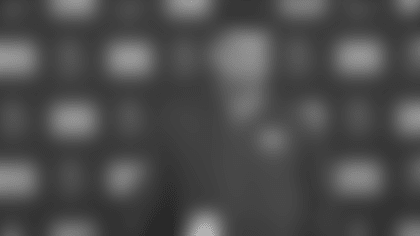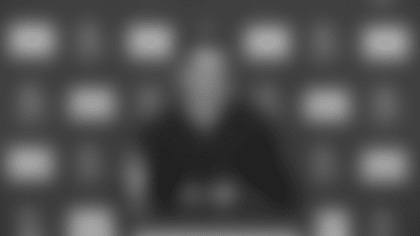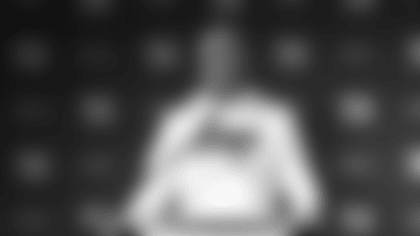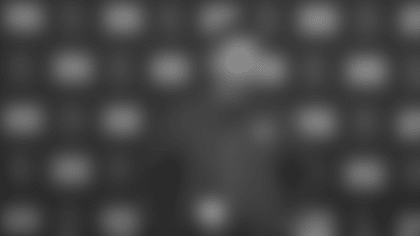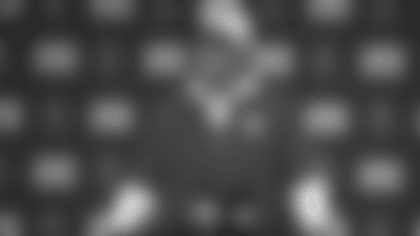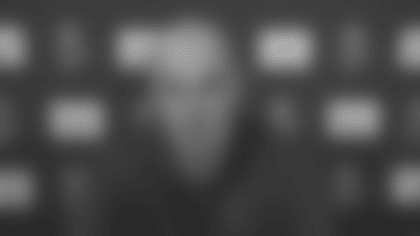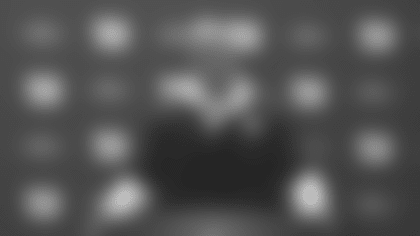General Manger Joe Schoen and Head Coach Brian Daboll
Joe Schoen: I just want to start off by thanking the Maras and Tisches. I've been here about a year, and thank them for giving us all the resources we needed throughout the season since the day we got here to build the best team we could last season along with any type of resources we needed. I would also like to thank everybody that works under this roof that contributed to not only the culture but their particular job responsibilities throughout the season. There's tremendous energy in the building right now, a really good culture. I'm just really happy with everybody's efforts throughout the year. I want to thank them for their efforts. With that being said, I would say it was a good season for us in many different ways. When you come in when I did in January, you're trying to get to know the roster, trying to get to know the players. Dabs (head coach Brian Daboll) had a very good plan in terms of the offseason, the OTAs, to bring the players together and start to develop that culture and comradery amongst the team. I thought that carried over to our fast start early in the season. The start we got off to was good. I think some of the positives were some young players got to experience success that maybe they haven't in the past and how you handle that. And we had a little bit of a lull, I would say, after the bye week, and also allowed some of our young players to learn how to overcome adversity and steady the ship. And we did that down the road and were able to win a playoff game. A lot of young players were able to get playoff experience. So, all in all, a lot of those lessons learned throughout the season will hopefully continue to help us moving forward. The foundation has been set, and I think some of those experiences that the players were able to go through this year will just allow us to build moving forward. With that being said, I'll open it up to questions.
Q: Do you plan on re-signing (quarterback) Daniel (Jones)?
Schoen: We'd like Daniel to be here. Again, he said it yesterday – there's a business side to it. We feel like Daniel played well this season. He's done everything that we've asked him to do. Again, there's a business side to it. We haven't went down that road yet. We still have to have our meetings with our staff late in the week, and we'll devise an offseason plan. We haven't had those meetings yet, but we would like to have Daniel Jones back.
Q: Having said that, when did you know? You and Dabs came in and had to do your due diligence and see what you had in Daniel (Jones) and everybody else. When did you make the decision, both of you guys, 'This guy is our guy to move forward with,'?
Schoen: I don't know if there was necessarily an 'Aha' moment or anything like that. We just continued to evaluate him throughout the season and what the coaches were asking him to do. And he was executing the game plans. Dabs and I communicate on a daily basis – not just Dabs and I, but the offensive staff and what they're asking him to do. He continued to improve throughout the season. I don't know the exact date or time when we're like, 'Daniel is our guy,' but we're pleased with how he played this season.
Q: Obviously you need a new contract with (running back) Saquon (Barkley). Is that somebody, also, you also would like to keep, and is the franchise tag a possibility?
Schoen: Again, this is a special team to me. It was my first year. We'd like to have all the guys back, I really would. But there's a business side to it. There's rules that you need to operate under in terms of the salary cap. Saquon, he's a good player. He's a great teammate. I loved getting to know him this season. He's a guy we would like to have back. It's just, again, we haven't had our end-of-season meetings yet. We're less than 48 hours after that game. Everybody is going to step back, take the emotion out of it, evaluate the roster and then we've got to operate under the salary cap. How are you going to divvy up? How are we going to create the roster? What are the priority positions, and how are we going to move forward? We would like to have Saquon back if it works out.
Q: Do you think you overachieved as a ball club, and do you think having sustained success is really what you're going for most of all here? And is there a possibility that a team, if they did overachieve, could take a step backwards along the way to getting where you want to go?
Schoen: That's a good question. I wouldn't say we overachieved. I think Dabs did a good job, along with his staff, of like, 'Focus on the process and not necessarily the results.' They came in on a weekly basis and focused on the process. They saw the dividends came on Sunday. I think there was a lot of good football players on our team. I think there were a lot of good teammates. Maybe we weren't the most talented, but we did have a good team. Guys cared about each other. The culture was good, and the process we had in place – again, I think the dividends showed on Sundays.
Q: When you say you want Daniel (Jones) back, ideally would you like that to be a long-term deal or a multi-year deal?
Schoen: We're going to get into all that. Again, it takes two. Both sides have got to have those conversations. We haven't crossed that bridge yet. There's tools at our disposal. Again, we'll go through several scenarios. It's kind of like I mentioned it last year, maybe it was at the combine, with the 'if, then' scenarios. You got to go through all those because you don't know how things are going to fall because it's negotiating. This is why you love the draft – you turn in the card, and they're yours. You know what the contract structure is; you know the years. This is where there's two parties involved, and it's going to be time consuming. We'll get together as a staff. We'll talk through the different options and have those discussions when it's appropriate.
Q: When do you plan to start those negotiations with the agents about extensions? Is there any urgency to get it done before that tag deadline to lock one of those guys in?
Schoen: We haven't discussed that yet. Again, we're going to meet as a staff on Thursday. We've got all-star games coming up. The last couple days have been a lot of – we did exit meetings yesterday with the entire football team, each player individually, working on calendars as we move forward the next couple weeks, so we mirror personnel calendars with the coaches. We'll have those meetings on Thursday, and those will continue through the weekend.
Q: With Saquon (Barkley), how do you view running back positional value versus he's also, other than Daniel (Jones), your best playmaker?
Schoen: Listen, Saquon has done everything we've asked him to do, and he's a good football player. Again, the positional value – we'll get into how we want to build this team and allocate our resources. That's what it comes down to. Again, he's a good football player. He was durable for us this year; he played well. And again, he's a guy that we would like to have back.
Q: In terms of the (salary) cap, would you like to do something to lower (defensive lineman) Leonard Williams' cap number?
Schoen: We haven't discussed that yet. I like his quote yesterday; I just saw that before I came down here that he would be interested in taking a pay cut. You guys did a good job on that, whoever asked him that. He didn't mention that in the exit interview with us.
Q: You redid the deal, and the numbers are really high. It's not like you have no cap space, but what's your comfort level with a number that high in general?
Schoen: We'll talk about that. Again, there's several options. We've got to go through the entire roster, we have a lot of UFAs (unrestricted free agents). We have guys that are good players that have contracts on the horizon. That's all part of the planning that we'll go through. And again, we just got to talk about how we want to divvy it up and prioritize different areas. And if we need to open up money, we won't rule that out.
Q: Joe just said, 'We may not have been the most talented, but we were a team.' Do you now look ahead, after your first year, and think, 'Okay, now we are one of the more talented teams, we can do a lot more with this,'?
Daboll: You know me; I take it day by day. I think it's year by year. Every team is different. Just because you won one year doesn't guarantee you anything the next year relative to what players you have, what players you don't have. You take a look at last year's playoff (teams) – I think seven of them didn't make the playoffs the following year. Two top seeds had losing records. I think our goal will always be just get better each day, try to put the best team we can together, work at it each day and not get too far ahead of ourselves. I appreciate, like Joe said, all the people that had a hand in this year. Obviously, it didn't end up where we wanted to end up. But it took a lot of work. It took a lot of energy. It took a lot of people in all areas of our building. The offseason started the day after we lost, unfortunately. That's where we're at. We'll do the best job we can of building up our team the best way we can, our organization, and then going out there and taking it day by day.
Q: Joes said that he wants Daniel (Jones) back. Obviously, you guys have talked about this a lot. Why do you want Daniel back and why do you think he can take this team, get another trophy for this team? Do you think he can?
Daboll: I've said it all year; he's done everything that we've asked him to do as an offensive staff. And he's done a really good job with operating and executing our offense. I think he's made strides in a lot of different areas. Certainly, we can all make strides in more, but he's been a good leader for us, played the quarterback position well for us. I'm happy we had him.
Q: How much does it change everything in regards to the team building that you have the quarterback, assuming you're able to re-sign him, and you don't have to find a quarterback or draft a quarterback and you can use those resources elsewhere?
Schoen: I don't think it really changes. It doesn't really change what we are going to do. We've still got to draft well. We want to be in good cap health. We're in a unique situation in that we have some players that are upcoming that were drafted here previously before we came here that played well. Again, it just comes down to how we want to divvy it up. Again, the money and the resources that we have along with the draft – we're still trying to build this thing so we can sustain it.
Q: But in Buffalo, you had to trade up to get (Buffalo quarterback) Josh (Allen), right?
Schoen: Every situation is different. I know you want to make the parallels with here and Buffalo. We made the playoffs the first year. I mean, every situation is unique and different. There were different factors that played into that. And again, I think Daniel played well enough this year. We'd like to have him back. And again – we have some difficult offseason decisions to make and how we are going to go about those. So, I look forward to getting to work on that here by the end of the week.
Q: On Saquon (Barkley), when you try to determine his financial value – how much do you factor in character and contribution to culture as opposed to talent when it comes to that evaluation?
Schoen: If that wasn't important, we probably wouldn't be approaching him. So, that's kind of a starter for us – if you're a good teammate, you're a culture fit for how we want to do things. That's where we go to those players. We don't factor in – when you're making comps (comparisons), it's hard to put a value on that. It's important, but you can look at how many yards, touchdowns, Pro Bowls, games played, games missed. Those are more markers that we can establish value on. We wouldn't approach him or look to sign a guy if they didn't fit our culture if we didn't think so.
Q: How close were you with him (Saquon Barkley in bye week conversations)? How close were you with him, and did you consider yourself close when you had that conversation?
Schoen: We had productive conversations. We were off on the value. Again, we said we would circle back up at the end of the season and continue those conversations, but that time of year, we weren't really that close I would think.
Q: When you talk about you have to make decisions when allocating resources, does it give you any pause that you see these big second contract for running backs kind of haven't panned out, generally, across the league?
Schoen: I wouldn't say all of them haven't panned out. But there's a risk to any big contract. Anybody can go out there and get hurt at any position. I think that's risk-reward. The good thing about, I feel, extending people in-house (is that) you know their work ethic. You know their durability. You know their injury history. You know how they train. You know how they practice. So, in terms of eliminating some of the margin for error, it's a known commodity.
Q: You've seen what a team can do when they bring in a top-flight wide receiver. You guys did that with (wide receiver Stefon) Diggs at Buffalo and (Eagles quarterback) Jalen Hurts with (Eagles wide receiver) A.J. Brown. If Daniel Jones is the quarterback, whoever's under center, how much of a priority is it to get a wide receiver that you can prepare to continue that evolution?
Schoen: I think we want to continue to build the entire team. Again, I know a number one wide receiver can be important, but there's some number one wide receivers that are home right now. You can go through this past weekend; you can go through a couple of weekends ago in the playoffs. A number one receiver doesn't guarantee you anything. I think it's important that we continue to build the team, and there's multiple positions where we want to upgrade throughout the offseason. So, yeah, I'd love to have a number one wide receiver. But we've got to place value on everything we do, and if it makes sense, that's something we'll look to do.
Q: Who are your biggest weaknesses? What do you think your weaknesses are?
Schoen: We're going to go through that with the coaches. Again, we're going to talk through all that. Again, we're going to step back, take the emotion out of it, evaluate the roster. We'll come up how we want to approach the offseason and where we need to improve.
Q: What do you make of your rookie class, your first draft, and just your entire rookie class? What do you think about it, and was it what you wanted it to be?
Schoen: I like the guys we brought in. I think there's some ups and downs, which you're always going to have with rookie classes. (Outside linebacker) Kayvon (Thibodeaux), he got injured in that Cincinnati game in the preseason and then kind of got healthy throughout the season and hit his stride. (Tackle) Evan (Neal), same deal – had some ups and downs and battled through injury. (Wide receiver) Wan'Dale (Robinson) was really coming along. He had over 100 yards through three quarters in the Detroit game, so, he would've been a big-time contributor, especially down the stretch, if he would've stayed healthy. So, a lot of big contributions without going through everyone.(Cornerback Cor'Dale) Flott made some big plays, made a big play in the Minnesota game. Has a high ceiling; we're excited about him. (Offensive lineman Joshua) Ezeudu started some games and then got injured. When these guys get healthy next year, I think that's going to provide depth. And some of those guys are going to compete for starting spots. (Tight end Daniel) Bellinger, we thought, had a really good season. Again, he got injured. I think they all got injured except for (inside linebacker Micah) McFadden at some point unfortunately. (Safety) Dane Belton, same deal. When he was out there, he played well. Had two interceptions for us. (Defensive lineman) D.J. Davidson, unfortunately, had an ACL in London but was a contributor in a rotational role. (Inside linebacker Darrian) Beavers. in the preseason, he was competing to start at Mike. Excited to see him when he comes back. And then, (offensive lineman) Marcus McKethan was having a really good camp for us before tearing his ACL. So, when healthy, I think there's going to be some really good contributors out of the class and then some other guys that will be really good depth players for us. But smart, tough, dependable players that we're happy we have.
Q: Has (defensive lineman) Dexter Lawrence done enough to earn another contract?
Schoen: I would say Dexter's done enough. Again, we want all of our guys back. We want them to be here for a long time. Dexter played well, and we've got him under the fifth-year option. And that'll be part of our end-of-season review in terms of how we want to approach that. But yeah, Dexter played really well, great person, great teammate. Happy he's here.
Q: You have him under contract, but I presume you'll sit down and talk with him about it, right?
Schoen: If you presume. Well, we're going to talk about it here in the future and then again, it goes back to we have certain cap space, and we have certain tools at our disposal. We'll figure out how we want to utilize them.
Q: Now that you have that cap space – now that you are a little bit more financially healthier, significantly more financially healthy than you were last year – do you plan on being aggressive in the free agent market? Is that somewhere where you're going to now look to really infuse this roster with talent that way?
Schoen: We've got some guys that are good players that are currently UFAs. These are known commodities in-house that we know intimately from being with them for a year. And we'll see who we want to bring back throughout these meetings and what their market value is going to be based on our analysis. Again, if we can bring some of our own back, we will, mixed with guys outside the building. We'll look at that. Ideally to me, the known commodities that are good football players that you know, that's going to be our priority first. And then we'll look outside the building, if we need to, to supplement the roster.
Q: In some ways, is taking that next step a bigger challenge for a football team, i.e., going from a playoff team to a true contender, is that a bigger step in some way?
Schoen: You're saying from?
Q: From where you were, in a difficult situation to making the playoffs, is it harder to go to the next step? From being a playoff team to truly contending for a title?
Schoen: I think what Dabs said, each year is different. Each team is different, the players that we lose, the players that we bring in. Again, we like our process, whether it's free agency, draft, waiver wire. In terms of improving the roster, we're always going to look to do that. I've got a lot of confidence in our coaching staff and the personnel staff that we'll continue to improve the roster any way we can. And again, every season is different.
Q: Do you think ownership still has patience for a long-term build and process? Or do you think your success this year may have accelerated expectations from ownership?
Schoen: We haven't really talked specifically about that. I'm in constant communication with (President and chief executive officer) John (Mara), (senior player personnel executive) Chris (Mara), (chairman and executive vice president) Steve (Tisch) about what we're thinking, what the plan is and where we are. That hasn't come up.
Q: Was it challenging at all this year for you that you had your plan set, and if ownership wanted it accelerated, did you kind of have to hold firm on some of the things that you believed in and not accelerate the plan based on what you were seeing in the standings, record wise or even on the field?
Schoen: I think it goes back to almost my opening press conference. We wanted to see progress. The question was, 'What's a successful season?' We wanted to see progress, and I think you saw that throughout the season. Again, credit to my personnel staff. They were relentless in terms of eating up the waiver wire, waiver claims and practice squad. Did a really good job. But again, to your point, we had to honestly evaluate the roster, whether it was the trade deadline or not. I don't believe in the 'You're one player away.' I think it's truly a team game. And that's where we were and the holes that we had. I thought it was best just to stay pat where we were. We have nine picks going into next year's draft. We do have a little bit more financial flexibility. As a group, we thought that was the best thing to do.
Q: You called the loss to the Eagles 'a crash landing.' How do you balance the success of the regular season with the disappointment of that playoff game in evaluating the entire season?
Daboll: I think you just take a step back. You give the coaches some time to evaluate the players, and then we'll have time to evaluate the things that we've done, whether that's scheme, personnel, decisions. You just take a step back. Unfortunately, I've been involved in eight playoff losses. So, 24 wins. Each year's a different year. It's different than it was 30 years ago. Each year, you come in here in April 17 for the offseason program, and when you ask the new guys to stand up, it will be dang near half the room. So, what we've tried to build is our foundation – how we meet, how we practice, how we prepare, how we travel, our mindset going into games. You have guys that have been on the roster on the roster that are coming back and that can help facilitate that with the new players that are coming in because every year's a new year. The team we had this year will be different next year, but that's just the NFL. So, how you build the chemistry with the team is important. It starts in April. You're glad you have some of the players that you're going to have coming back, but certainly, you're going to have a lot of new players, whether that's draft picks, free agents, different guys. And everybody's got to come together again and start building the team for the next season.
Q: Do you anticipate any changes to your coaching staff? Do you have to always prepare for the potential of replacing a coordinator if they get a (head coaching) job?
Daboll: Like I've said all season, I've had a lot of confidence in our guys. They've done a great job, and women, on our staff. When you have these interviews that come up, and I've been part of them the last three seasons, you always have to have a plan because you never know what's going to happen if (defensive coordinator) Wink (Martindale) gets a job, if (offensive coordinator Mike) Kafka gets a job. So, you have to go through the whole process. The good thing about being here for the second year is that you have a lot of people in place that again, to go back to what I said about the players, that know how we do things. So, as I'm sitting up there with (director of coaching operations Laura Young) LY and going through calendars and OTA practices and when the offseason starts and self-scout, we do a lot of things. Last year was the first time we all did it together. This will be the second time. So, a little bit more smooth.
Q: Do you think there's a big gap between the Giants and the two teams that remain standing in the NFC?
Schoen: Yeah, I know Philly more intimately. And, yeah, I would say yes. There's a talent gap there that we need to close, and to me, it's the NFC East. I mean, we were 1-5-1 against the NFC East. If you win the division, the rest takes care of itself. So, that's always going to be a goal of ours: to close that gap and be NFC East champs. That's the goal, and that's what we're going to work towards.
Q: You had a lot of restrictions on you when you came in last year, financially, with putting together a staff. Things are a little more stable now going into this offseason. How much have you been looking forward to this offseason and really getting your hands on this roster and doing it the way you've wanted to do it?
Schoen: I didn't want the season to end, I'll tell you that (laughs). Dabs saying 'a crash landing,' that's right. Still driving in this morning, it still hurts. But you just have more flexibility. There were times in season where there were maybe some veteran players that we wanted to sign that would've helped us, but we just weren't able to do it. That part stings throughout the season because we could've helped the roster, but just didn't have the flexibility. Yeah, to have financial flexibility, nine draft picks, to be able to devise a plan where you have a little bit more flexibility and resources, I'm definitely excited about that.
Q: For both of you, picking up on the Philly theme, with the two competitive games between the two of you, how much did the trenches – how much did the line of scrimmage – matter in both of those games where it certainly seems like Philly has more guys at that level, more of a rotation at those levels, to some degree, and just were better in that part of the game?
Daboll: I think you asked that after the game, too. They have a good defensive line and good offensive line. Everything starts up front. We certainly could've done a better job, too. But give them credit. They have good players on both sides of the ball. I think we have good players, but they just played better and did better than we did.
Q: How was that dinner with (wide receiver) Odell Beckham (Jr.)? And is he a player you're going to revisit going into the spring?
Schoen: Dinner was good, and we're going to consider, again, when we have this offseason meeting, every position, who's available. Who are the players who are potential – that we could sign? Again, we'll devise the plan from there. That's kind of where we are right now.
Q: What's your opinion of this free agent class in general?
Schoen: The UFA class? Again, you can look at it today, and it's going to change by the time we get there because a lot of the times the good players that are UFAs end up staying with their teams. So, we're working through that now. We'll start our free agent meetings next week, devise a plan in terms of the players that maybe we want to target. But there's definitely some players out there that would help us.
Q: Do you think free agency is more of a tool to build a team than it was maybe five, 10 years ago?
Schoen: It can be. It can be if you get the right guys and they're durable because typically when you're signing outside your building, you're paying those guys a little bit of money that if they stay healthy and produce at the level, then yeah. It's definitely a tool that we've used before. Obviously, the draft and develop, like I was saying earlier with players in your system already, in your building, you know them. You can't really do a lot of research on some players that are with different teams, or you don't know their work ethic or injury history. So, again, I think when you're making those financial decisions, you've got intimate knowledge of the players, I think there's less margin for error, in-house.
Q: Is (safety) Julian Love – I know you're not going to go down the whole list – but he's a guy, culture, you know him, he stayed healthy, he did a lot of different things. Brian (Daboll) said some good things about him. Is he a guy you look at and say, 'Yeah, he's important,'?
Schoen: Again, we'd like to have a lot of these guys back. It's just as we go through this and we talk to the representatives, he's a guy – I know he mentioned it yesterday – that we talked to in the bye week. And we weren't able to get something done with Julian. Julian knows how we feel about him. We had a good exit interview with him yesterday. Again, as we start to get into the offseason planning, we'll talk to the coaches. We'll see where he fits in. And if we can get something done, that'll be good.
Q: (Wide receiver) Sterling Shepard – the role he could have going forward. He's been a guy that's been around forever. Brian talked about him and the fact that he's had an effect on the team culture.
Schoen: Love Shep. He's awesome; juice guy all the time. He's one of my favorites here. We'll continue to monitor his rehab, coming off the ACL. He had the Achilles before. He's been a tremendous resource around here for us. He's a guy that we'll talk about as well at the end of the week and continue to communicate with the training staff, (senior vice president, medical services/head athletic trainer) Ronnie Barnes and those guys, on where he is from that standpoint, when he'll be healthy enough to play. Again, that's something we may or may not entertain.
Q: Did your guys' opinions on (safety) Xavier (McKinney) change because of the circumstances of his injury and how that happened? You saw him as a cornerstone moving forward. Did that change at all?
Schoen: Not for us. He's a young man that made a mistake. To me, really initially, it wasn't about football. It was more about his wellbeing as a young man. And we've got younger kids. Dabs has some older than mine. But we all make mistakes. And we've got to learn from it. For us, it was just about supporting Xavier through that. He fought to get back. Football was secondary when we got the call. I'm just glad that he was able to play again. He's a great kid that we look forward to working with.
Q: With respect to free agency, how married are you to what you believe a player is worth and your walk-away number compared to sometimes when you're in negotiations and the market value can exponentially change how much a player is going to get?
Schoen: That's something our staff, they do a great job, and we talk about it all the time: 'What's the walk-away?' We come up with a walk-away, and you have to be comfortable because, I'll use the term I use around here, if you shop hungry, you overpay. It's a bad deal, and then you get buyer's remorse. It's important in free agency to come up with the proper value – where you see them as a staff and the value and where it fits into your salary cap and your team. And then, I think it's smart to have a walk-away number.
Q: Do you view Daniel (Jones) as a quarterback who can help you win a Super Bowl?
Schoen: We're happy Daniel's going to be here. We're happy he's going to be here. Hopefully we can get something done with his representatives. And that would be the goal – to build a team around him where he can lead us and win a Super Bowl.
Q: You're saying he's going to be here next year?
Schoen: We're going to have these offseason meetings here at the end of the week, and we're going to talk about it. And then with the resources we have, we're going to talk to his representatives and hopefully be able to get something done to go off the first question.
Q: You were 22-59 before you got here. The Giants were 22-59 the five years that preceded you guys getting here. Why do you believe this team turned the corner this year?
Schoen: That's a good question. A lot of factors. Again, I said it in the first press conference. The cupboard wasn't bare. There was some talented players here – really good coaching staff. They did a really good throughout the season as we continued to, whether it was draft, free agency, waiver wire, improve the roster, our practice squad. We were able to create a good culture where the players were able to be themselves. And the coaching staff did a good job of maximizing the talent of the roster on a weekly basis. So, a lot of credit goes to Dabs and his staff.
Q: From your vantage point, what do you view as the reason for the injuries in the first half, early season? And have you already commissioned and kind of studied your evaluation of how to improve that?
Schoen: We're working through that, specifically the rookie class. Is it the young players coming in, the onboarding process? Are we doing that right? We're going to turn over every leaf to figure that out because healthy players give us the best chance to win. We had some ACLs this year. We had some MCLs, stingers. So, we'll do a deep dive in the offseason and do whatever we can to try to improve that, that way we can be the healthiest we can.
Q: At what point do you close the book on 2022? Or is it something that's fluid and that you're constantly working on last year, building towards the future?
Schoen: It's pretty much closed. It's pretty much closed other than evaluating the roster off of the 2022 season. But we already kind of know what lies ahead. We talked to our UFAs and everybody yesterday. So now it's, to me, All-Star games are coming here. You've got the East-West games, Senior Bowl, Combine meetings, free agency meetings. There's no vacation. We've got to keep moving forward and devise that plan for the offseason.
Q: (A previous question) mentioned Dex, but there are other guys with one year left who seem like reasonable extension candidates. Do you simultaneously negotiate with them? Or are the UFAs the priority because they don't have a year left?
Schoen: UFAs will probably be the priority early on, but we'll also factor those in. We'll look at it holistically, who's under contract for '23, '24 and so on. Again, we're not just planning for the 2023 offseason. We're looking down the line of '24 and '25 as well. What's on the horizon? How will this affect us moving forward? So, we're going through a bunch of different scenarios, and we'll continue to do that at the end of the week and throughout the weekend.
Q: How much further along are you in the process, looking ahead to the next season, coming off of what you just did rather than last year? Joe, I think you just got the job two days ago a year ago. Dabs hadn't been hired yet. Do you think that is an advantage that you can actually move towards 2023 with everything that you have at your disposal rather than trying to catch up?
Schoen: Yeah, we talked about it the other day. Once we got through the exit interviews yesterday, we've pretty much been through a calendar year – a football calendar year together. So, the coaches' evaluations of UFAs, the coaches' evaluation of our roster, All-Star games, we've been through all of this stuff. So, the process is in place. Everybody here right now has been a part of that. So, there's clarity in terms of what we want from our staff, what Dabs and his staff want from us. So, the transition into this offseason will be much smoother.
Q: There's been a lot of time talking about, 'Are you going to sign him? Are you going to sign him?' Is there anybody you said, 'Look, you're not coming back,'?
Schoen: (Laughs) No, we didn't have those conversations yesterday. No, we didn't. That's a good question, though.
Q: That gap that exists between you and the Eagles and the other Super Bowl contenders, given your roster and cap situation, do you think it's possible to close that gap in one year? Or is it likely to take longer than that?
Schoen: We're going to try to do the best we can. We're always going to try to build a better roster, players, whatever it may be, whatever it is – resources around here. Anything that we can do that's in the best interest of the franchise that's going to make us better, we're going to do. You can't put a timeframe on that, but we're going to be relentless in the pursuit of building a championship team here.
Q: How much is different this offseason because you came in last year and you basically just cleared the deck? You didn't make any big signings. You're going to potentially commit to guys, big money, long term. You're going to sort of define your tenure. How do you view that? Is that a big difference?
Schoen: Obviously, the resources that are available are different than last year. I think, again, the advantage of being around the players for a year, you know who they are. You know how they work. And again, just having more flexibility, it's different from that standpoint. As for defining my tenure and all, I'm not really worried about that. We're trying to do the best we can with what we have to build a championship team where we can sustain success.
Q: As a team, what do you feel like you guys especially need to be to be a better team? Not to name the players or anything, but just as a team, what are the areas do you feel like you need to improve?
Daboll: That's kind of what Joe talked about. We'll dive into that as a coaching staff here. We'll spend a lot of time on self-scout and process and things we can improve on, whether that's night before meetings, whether that's practice, whether that's situational play calls, techniques, drills. I think you close the chapter on last season, but you need to figure out some of the things that you need to do a better job of. There certainly will be probably a significant amount of things that we sit back and say, 'Boy, we could've done this a little bit different or improve on this,' and take a deep dive into it. Take your time doing it. And then once you get back on April 17 and start going through it, you try to implement those new things or corrections that need to be made or scheduling differences. But again, every year is such a new year – at least the 20-plus years I've been in the league. Again, half the team is usually different. So, you don't just collect talent. You try to build a team. And that's what we talk about all the time. There's certainly players that will be out there – whether it's free agents, whether it's draft picks – that are talented players. But it's how you put together the team, how the team responds to adversity, how it comes together in the offseason, leading up to training camp, the things you do in training camp – all the things that you go through each season, that's what defines a team early in the stages and how you handle a lot of different things, the coaches, the players, the support staff. It's just a new year. Every year is a new year. Like I told the guys when they left how much I appreciated their work and their commitment to the team, but unfortunately, you're all not going to be here. You wish you could just bottle it up and then bring it back April 17, and the people in the seats are there and everybody has kind of worked together, been through some tough times. But that's not the case. So, however many new people are here, you've got to put them into your system. You've got to bring them along. You've got to build team chemistry. And every team that I've been part of has been different. Not one team is the same. So, that's the beauty about this league is every year it's a new year for everybody. There's only four teams playing – the four best teams in the league. They've all earned it. So, every team that is not holding that trophy at the end of the season, it's a stinger. So, you've got to try to figure out ways to do a better job the next season. But it's such a new year. Every year is different. Every year that I've been part of has been different. I've been part of a Super Bowl team and then didn't make the playoffs the next year. So, how we build our team and how we build the organization and continue to grow, I think all those things are important. But the team itself, that'll all come together throughout the months of April, May, June, July, August, right into the regular season like this did.




